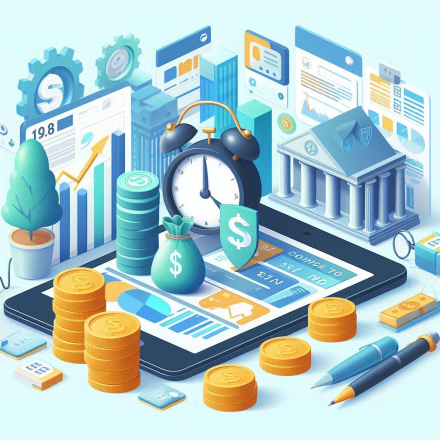
The panels show that having adequate financial knowledge is essential in making sound decisions regarding money matters. It equips you to control your financial resources, make sound decisions involving resources, and design your financial future. Whether you are a novice investor or experienced, learning more about financial literacy to achieve better and enduring results is always relevant. Here are the measures you can take to enhance your knowledge of personal finance.
1. Start with the Basics
Tax, investment, and other financial-related topics are complex, but one must understand the fundamental concepts before going any deeper into these topics. The ideas that should be grasped include budgeting, saving, purchasing equipment on credit, and interest charges. There are books, a podcast, or other resources that will describe these terms if you do not understand them. If you want to master a subject, always begin by ensuring you have the basics of that subject down so that when the time comes to delve deeper into the details, you may find it easier to do so.
2. Adopt a budget and Stick to It
Developing a budget is a good start regarding the overall process of personal money management. It assists you in monitoring your income and expenditure, your saved cash, and the kind of cash you have. Thus, while following the budget, you become more conscious of your spending behavior and start thinking about where and how to spend money for your primary needs, savings, or investments. There are a significant number of apps that can ease the process and help keep one on track in terms of budgeting.
3. Read Financial Books and Articles

Books and articles about finance are numerous; more specifically, many useful ones can add to your knowledge. There is a collection of books that people have read and consulted in their quest for knowledge. Some are Rich Dad, Poor Dad by Robert Kiyosaki, and Total Money Makeover by Dave Ramsey. Reading financial articles and blogs will also update you with new trends and practices in the financial market.
4. Take Online Financial Courses
Most online learning platforms provide lessons on managing finances, investing, and money. I am considering Coursera, Udemy, and Khan Academy because they have free and paid simple courses for beginners. These courses can provide good formal training and are a superb platform for enhancing your understanding of the topic and its usefulness.
5. Listen to Finance Podcasts
Listening to podcasts is an easy and fun method of enhancing your knowledge of finance. From practical topics such as how to increase your budget and manage your own money to more complex investing issues, there’s a program fit for every type of learner. Podcasts such as The Dave Ramsey Show, ChooseFI, and The Financial Independence Podcast offer proactive examples and narration from real-life experiences to enhance understanding of specific financial ideas.
6. Practice Smart Investing

After you have mastered a certain level of handling personal finances, start getting to know investment. Smart investing entails how to invest in the stock market, the kinds of investments to make, and the risks taken. Several types of online investing, such as stock buying, for instance, by using Acorns and Robinhood, allow investors to invest small amounts of money. Thus, while investing in relatively small quantities and in the early stages of accomplishing this activity, it is very beneficial for individuals to work on their financial literacy.
7. See Financial Planners or teachers
One should often consult experts when it comes to managing your cash. An investment expert can give individual consultation about and on a client’s investment objectives. Moreover, reading someone’s story, which others call a ‘financial role model,’ can help one learn the necessary tricks and choose the right path.
Conclusion
Evaluating your financial literacy is never a one-time task that you can complete and put away; instead, this is a long-term work, play, and learning process. This means you can educate yourself on the basics, affect your mind change through books and podcasts, and implement smart investing to manage your finances better. You can. With better financial literacy that you are going to get, you will be able to make better decisions that will see you to your desired financial position.





